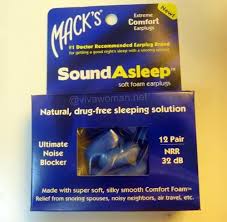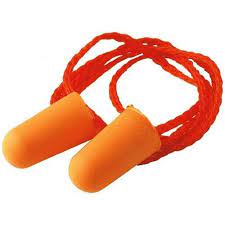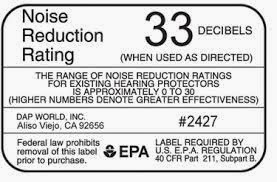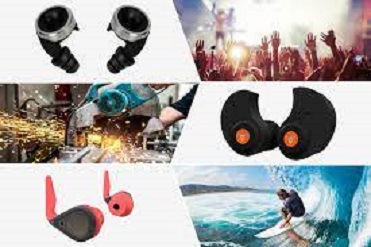There are many different types of ear plugs on the market, and it can be difficult to decide which pair is right for you. Do you need ear plugs for sleeping? Or maybe you need ear plugs for noise control at work. No matter what your purpose, we have the perfect ear plugs for you! In this blog post, we will discuss the different types of ear plugs and how to choose the right pair for your needs.
Table of Contents
- What Is Your Purpose of Using Ear Plugs?
- Ear Plugs: Activities and Features
- Types of Ear Plugs and What Are They Good for?
- Ear Plugs and Noise Reduction Rating (NRR)
- What Is Your Favorite Pair of Ear Plugs?
The purpose of ear plugs is important to consider before making a purchase. Are you looking for noise control? Or do you need them for sleeping?
There are different types of ear plugs that serve different purposes. If you are looking for noise control, there are options that will help block out sound so you can focus or sleep. Sleeping ear plugs typically have a softer material to provide a comfortable fit and block out light snoring noises.

To choose the best ear plugs, it is important to first consider your purpose for using them. Once you know what you need them for, you can narrow down your options and choose the ear plugs that will work best for you.
What Is Your Purpose of Using Ear Plugs?
Wearing ear plugs can be a great way to improve your sleep quality or focus during work or studying. But with so many different types and brands on the market, it can be hard to decide which ones are right for you.
If you’re not sure where to start, here’s a quick guide on what to look for when choosing ear plugs:
- sleeping
- listening musis, books or podcasts
- working in a loud environment, swimming, riding a motorcycle or other vehicle
- for studying or working in a noisy environment
- for sleeping
- for swimming
- for riding a motorcycle
When choosing ear plugs, it is important to first consider your purpose for using them. Do you need them for noise control? Or are you looking for ear plugs to sleep better? If you need ear plugs for noise control, there are ear plugs that can help block out sound so you can focus or sleep. And if you’re looking for sleeping ear plugs typically have a softer material to provide a comfortable fit and block out light snoring noises.

Ear Plugs: Activities and Features
There are ear plugs made specifically for listening to music, books, or podcasts. These ear plugs have a special design that allows you to hear the audio clearly while still protecting your hearing.
If you work in a loud environment or ride a motorcycle, there are also ear plugs designed to help protect your hearing in these situations. These ear plugs usually have a higher noise rating and can block out more noise than standard ear plugs.

Choosing the right ear plugs can make a big difference in your comfort and ability to enjoy activities or get a good night’s sleep. Be sure to consider the purpose of your ear plugs before making a purchase so you can choose the best option for you.
Types of Ear Plugs and What Are They Good for?
-
- Foam Earplugs. Foam earplugs are the most common type of earplug. They’re made of soft, spongy foam that’s compressed and inserted into your ear canal. Once in place, the foam expands and forms a seal that blocks out noise. Foam earplugs are inexpensive and easy to find. They’re also comfortable to wear for long periods of time. Foam earplugs block excessive soundwaves from entering the ear canal, helping you sleep better.

-
- Silicone Earplugs. Silicone earplugs are made of soft, pliable silicone that forms a seal in your ear canal. They’re more expensive than foam earplugs but can be reused multiple times. Silicone earplugs are also available in different sizes to ensure a good fit. what are they good for: sleeping. driving or music?
- Moldable Earplugs. Moldable earplugs are made from a mold of your ear canal. They provide the best fit and noise-blocking ability of any type of earplug. custom ear plugs are more expensive than other types but can be used for a long time. Moldable earplugs can provide a strong sound-isolation barrier.
- Flanged Earplugs. Flanged earplugs have a soft foam body with a flange (or wing) on each side. The flanges help keep the earplug in place and create a better seal than foam earplugs alone. Flanged earplugs are more expensive than foam ear plugs but can be easier to insert and remove from your ears.
Ear Plugs and Noise Reduction Rating (NRR)
The Noise Reduction Rating (NRR) is a measure of how much noise an earplug can block. The higher the NRR, the more noise the earplug will block.
When choosing ear plugs, it’s important to consider the Noise Reduction Rating (NRR) and how much noise you’ll be exposed to. Noise Reduction Rating measures the amount a hearing protection device is capable of reducing sound exposure in decibels (dB).
The maximum NRR for earplugs is 33 dB, however the majority earplugs offer results in the 20 to 30dB range. When it comes to NRR, a good fit is more essential than a high-end material. If you’re working in a very loud environment, you’ll need ear plugs with a high NRR to protect your hearing. But if you’re just looking for some relief from general everyday noise, ear plugs with a lower NRR will suffice.

Silicone or foam-filled? You’ll want to pick the most effective type of earplugs for blocking out sound. If you need the absolute best in noise cancellation, go for a set of earplugs with an NRR higher than 31 dB. In other situations, most other earplugs will aid in sleep improvement. Be sure to choose ear plugs with an NRR that meets your needs so you can enjoy peace and quiet without worry.
No matter what type of earplug you choose, be sure to read the instructions carefully so you know how to insert them properly. If you’re not sure which type of earplug is right for you, ask your doctor or a hearing specialist.
What Is Your Favorite Pair of Ear Plugs?
here are many different types of earplugs available on the market today. Foam, silicone, moldable, and flanged earplugs are just a few of the most popular options. Now that you know more about choosing the best ear plugs, purpose of using them and the Noise Reduction Rating, you can make a more informed decision about which ear plugs are right for you.
Do you have a favorite pair of ear plugs? Let us know in the comments below!
